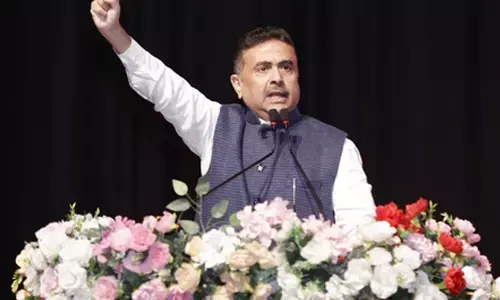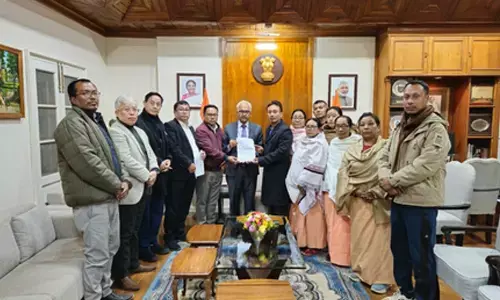The future of online education in India

The growing emphasis on personalized and skill-specific learning, bolstered by technological advancements, is not only enhancing the learning experience but also aligning it closely with the evolving demands of the global job market. As these trends continue to unfold, they promise to unlock new potentials in the educational sector, making India a front-runner in the world of digital learning and innovation
The landscape of online education in India is undergoing a rapid transformation. As we step into the new era of 2024, several key trends are emerging, driven by technological advancements and changing societal needs.
Aligned with the aforementioned developments, The Government of India’s commitment to online education is evident through initiatives like PM e-Vidya, PMGDISHA, and SWADES, aimed at enhancing digital accessibility and inclusivity.
The rise of online education in India marks a significant shift in the country's approach to learning. Spurred by increased internet penetration (according to Statista the no. is set to reach 1.5 billion users by 2028) and the proliferation of smart devices, this trend has democratized access to quality education, transcending geographical and socio-economic barriers.
Online platforms offer diverse courses, ranging from K-12 education to specialized professional skills, catering to a broad spectrum of learners. This digital transformation in education not only complements traditional classroom teaching but also opens new avenues for interactive and personalized learning experiences.
Micro-learning and remote education
A significant shift towards micro-learning and remote education is evident. This approach allows individuals to upskill while maintaining their regular jobs. IBM's study highlights that remote learning enables learners to absorb content 5x more effectively at 1/3rd of the cost, leading to substantial savings for companies. This trend points towards a future where learning is more accessible and flexible, tailored to fit into busy lifestyles.
Immersive learning with AR and VR
Immersive learning experiences, utilizing Virtual Reality (VR) and Augmented Reality (AR), are becoming increasingly popular. A survey by Lenovo showed that 54% of teachers and 41% of parents are interested in incorporating AR and VR into education.
These technologies offer engaging, interactive learning experiences, leading to higher retention rates (75-90% according to TouchStone Research). With India being the second-largest consumer of mobile phones, AR and VR have vast potential to transform educational experiences.
Adaptive learning technology
Adaptive Learning Technology is custom-tailored to meet individual learning needs, providing just-in-time feedback and guidance. This technology emulates the support of an educator, scaling personalized learning to a larger number of students. According to a report by Fortune Business Insights, the global adaptive learning software market is projected to reach US$957.1 million by 2026, growing at a CAGR of 12.3%.
Nano learning
Nano Learning, a subset of bite-size learning, is gaining considerable traction in India. According to Digital Learning Institute, this approach breaks down complex concepts into smaller, more manageable segments, improving retention rates by up to 80%. This method is particularly effective in addressing the decreasing attention spans in today’s fast-paced world.
The rise of micro-credentialing and digital badges
In 2024, Indian online education is significantly influenced by the rising trend of micro-credentialing and digital badges. This approach, marking a shift towards focused, skill-specific learning, has seen a 50% increase in course offerings since 2022, as per a report by FutureLearn. Forbes mentioned that this trend is being recognized by 65% of Indian employers as valid skill indicators, these digital credentials are transforming professional profiles.
Learner engagement is notably higher, with a 35% increase in course completion rates when digital badges are involved says LinkedIn, reflecting their motivational impact. Predominantly chosen by over 70% of professionals for targeted skill development according to a study by HolonIQ, micro-credentialing's market value in India is estimated at $300 million by 2024, underscoring its significant role in addressing the industry's skill gap and enhancing the efficiency of online learning.
Mobile-first learning
According to a report by the Ministry of Information & Broadcasting, Government of India, India has more than 1.2 billion mobile phone users! Meaning the potential of mobile learning is huge. As mobile devices become increasingly integral to daily life, it's beneficial for e-learning platforms to tailor their designs and materials for mobile usage. This adaptation enables workers to engage in educational activities anytime and anywhere using their mobile phones or tablets, which in turn enhances their efficiency and access to educational resources. As per a report by Mind Tools, 43% of the learners witness improved productivity levels when compared to non-mobile users.
Blended learning models
The rise of blended learning models, combining online and offline instruction, is another key trend. Driven by the popularity of Massive Open Online Courses (MOOCs), this model offers flexible and personalized learning experiences. This trend reflects a growing awareness and acceptance of online education among students and working professionals.
Conclusion
All in all, it is evident that the landscape of Indian online education in 2024 is being reshaped by dynamic trends as mentioned above supplemented by the rapid acceptance of technology across the country. These trends, together with government initiatives are pivotal in crafting an inclusive, accessible, and future-ready education system across the country.
The growing emphasis on personalized and skill-specific learning, bolstered by technological advancements, is not only enhancing the learning experience but also aligning it closely with the evolving demands of the global job market. As these trends continue to unfold, they promise to unlock new potentials in the educational sector, making India a front-runner in the world of digital learning and innovation.
(The author is the Vice President – Brand & Marketing at M Square Media)














